Il existe de nombreux signes inquiétants qui montrent que vous devez consulter un gastro-entérologue et dans cet article, vous apprendrez quels symptômes rechercher. Un gastro-entérologue est un professionnel de la santé et un médecin qui a suivi une formation rigoureuse et approfondie pour apprendre à gérer, traiter et guérir les circonstances médicales liées au tractus gastro-intestinal. Ces zones comprennent l'intestin, l'estomac, le foie, l'œsophage et le rectum.
Avec un tel titre nécessitant plus de 5 ans de formation en «médecine interne» et «gastro-entérologie» (à la fin de la faculté de médecine); Les médecins gastro-intestinaux fournissent des soins et des traitements exceptionnels et réussissent généralement mieux que les médecins en matière de diagnostic et de traitement des complications gastro-intestinales.
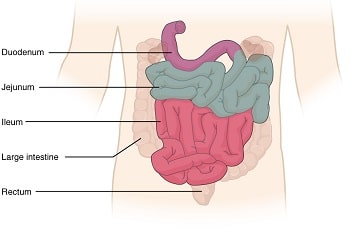
Table des matières
Les gastro-entérologues reçoivent une formation spécialisée en « endoscopie », qui consiste à utiliser un « tube » petit et étroit, mais flexible, avec une caméra intégrée qui sera utilisée pour naviguer dans le tractus gastro-intestinal pendant les procédures, les chirurgies ou les tests de diagnostic pour voir s'il y en a. des maladies ou des excroissances sont présentes.
En ce qui concerne les problèmes médicaux liés à l'appareil gastro-intestinal, la recherche d'un traitement auprès d'un gastro-entérologue vous assurera de recevoir le traitement le plus efficace possible car vous recevrez un traitement d'un professionnel de la santé qui possède une expérience de formation unique et approfondie qui vous permettra de recevoir des soins de traitement à la fois de haute qualité et «complets» pour toutes les complications médicales liées au système gastro-intestinal que vous pourriez rencontrer.
Il est statistiquement prouvé par l'utilisation d'études que les gastro-entérologues effectuent des coloscopies et des soins complets pour les problèmes gastro-intestinaux à un taux de réussite plus élevé par rapport au(x) traitement(s) fourni(s) par d'autres types de médecins. Cela signifie pour vous que vous recevrez un traitement qui détectera avec précision la présence d'un cancer ou de polypes tout en réduisant le risque de complication médicale découlant du traitement (les patients traités par voie gastro-intestinale peuvent également s'attendre à passer moins de temps dans l'hôpital).
Dans cet article, nous couvrirons les « 15 principaux signes avant-coureurs que vous devez consulter un gastro-entérologue », qui vous aideront à déterminer si vous présentez les symptômes d'une complication médicale qui nécessiterait l'attention et le traitement d'un gastro-entérologue. docteur.
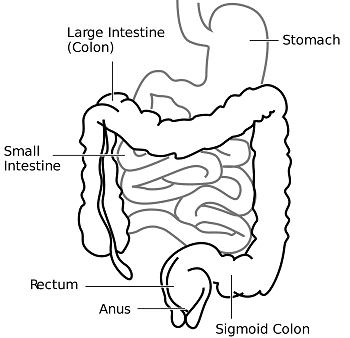
Lorsque vous commencez à reconnaître des « douleurs » nouvellement formées ou des signes/symptômes provenant de la région du tube digestif, tels que des brûlures d'estomac, des douleurs abdominales, de la diarrhée ou de la constipation, vous vous demandez peut-être si vous devriez ou non consulter un médecin régulier, un interniste ou un gastro-entérologue (spécialiste de la digestion). La personne que vous choisissez pour diagnostiquer votre ou vos affections au début de leur apparition peut varier en fonction d'un certain nombre de facteurs.
Dans certaines situations, faire le bon choix de consulter un médecin ou un gastro-entérologue peut ne pas être clair, mais nous vous aiderons ci-dessous à comprendre les symptômes à surveiller pour les problèmes gastro-intestinaux qui doivent être diagnostiqués et traités par un médecin gastro-entérologue.
Si vous ressentez des symptômes ou des douleurs dans la région digestive pour la toute première fois, la première étape peut être de demander conseil à votre médecin traitant, tel que votre médecin traitant ou votre interniste.
Il s'agira, espérons-le, d'un médecin avec qui vous avez établi une relation au fil du temps, car il aura un accès total à vos antécédents médicaux et de traitement qui pourront être examinés pour aider à déterminer la cause des symptômes que vous ressentez.
Après avoir rencontré votre médecin et lui avoir fourni vos symptômes, un examen physique sera effectué pour déterminer si des tests doivent être effectués ou non. Une fois que le médecin a terminé l'examen physique et a une bonne idée de ce qui vous cause les douleurs gastro-intestinales soudaines, il peut déterminer que le traitement doit être fourni par un spécialiste qui peut fournir des soins de récupération affective. Dans ce cas, le "spécialiste" serait le gastro-entérologue.
Dr Tarugu, un gastro-entérologue expérimenté et primé du sud de la Floride recommande aux personnes qui souffrent constamment de poussées sporadiques ou récurrentes dans des conditions précédemment diagnostiquées (telles que la colite ulcéreuse, la maladie de Crohn ou le SCI) de consulter immédiatement un gastro-entérologue pour éviter une croissance ou une complication supplémentaire maturité.
Pendant votre traitement par le gastro-entérologue, il informera votre médecin de l'état de votre état et des progrès réalisés. Ces mises à jour aideront votre médecin de soins primaires à bien comprendre votre état, ce qui l'aidera à vous fournir les soins appropriés dans la liste en tant que soutien post-récupération. Quelques autres maladies gastro-intestinales que les médecins gastro-intestinaux traitent sont des maladies situées dans la région du pancréas ou du foie.
Si votre médecin de premier recours soupçonne que des problèmes surviennent dans ces domaines, il est prudent de supposer que vous serez référé à un gastro-entérologue local pour un diagnostic approfondi et qu'un plan de traitement puisse être élaboré.
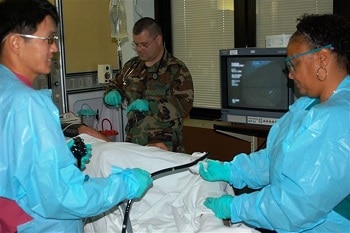
Chacun d'entre eux sont des signes uniques d'affections potentiellement graves qui ne doivent pas être rejetées comme "non importantes", car chacun des symptômes énumérés ci-dessus pourrait entraîner des signaux de complication bien pires s'il n'est pas diagnostiqué et traité "tôt".
Ci-dessous, nous expliquerons ce que chacun de ces symptômes pourrait signifier et pourquoi il est important de demander conseil et traitement à un médecin gastro-intestinal le plus rapidement possible.
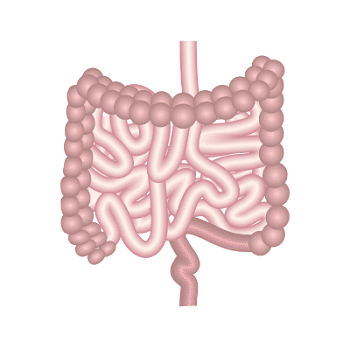
On estime qu'un total de 60 millions de personnes aux États-Unis éprouvent et souffrent de brûlures d'estomac en moyenne au moins une fois par mois avec environ 15 millions de personnes souffrant de la maladie "quotidiennement". Les symptômes d'indigestion acide (brûlures d'estomac) sont plus fréquents chez les femmes enceintes et les personnes âgées.
Il existe une affection appelée « reflux gastro-œsophagien » qui est une affection corporelle qui provoque le reflux de l'acide gastrique et son retour dans l'œsophage. Pour cette raison, certaines personnes auront malheureusement l'expérience de symptômes qui en découlent lorsque ce processus aura lieu (qui peut être quotidien, hebdomadaire ou mensuel).
L'un des premiers signes de consultation d'un gastro-entérologue pour des brûlures d'estomac est l'expérience de ressentir un inconfort intense provenant de la région située derrière le sternum. Cette sensation a tendance à transiter vers la région de la gorge et du cou, donc une gêne de toute sorte dans cette zone devrait être un signe d'avertissement que vous devez consulter un gastro-entérologue pour un diagnostic/traitement.
Un autre signe avant-coureur du reflux acide est un goût « acide » ou « amer » au fond de la gorge, car il s'agit du goût de l'acide gastrique. Étant donné que les symptômes de pression intense des brûlures d'estomac peuvent durer jusqu'à plusieurs heures (et s'aggraver en mangeant), une telle agitation constante dans cette zone devrait vous inciter à rechercher immédiatement des tests de diagnostic auprès d'un médecin gastro-intestinal.
Si vous ressentez de tels symptômes 2 fois ou plus par semaine, ou si vous perdez du poids, perdez du sang ou mangez, vous pourriez avoir un cas de brûlures d'estomac très grave. Si de tels symptômes surviennent, vous pouvez éventuellement avoir une maladie connue sous le nom de "maladie de reflux gastro-oesophagien (ou" RGO pour injection).
Avant de pouvoir commencer à comprendre les causes exactes du RGO ou du reflux gastro-oesophagien, vous devez d'abord comprendre quelles sont les causes des brûlures d'estomac. La majorité des individus ressentiront l'agitation des brûlures d'estomac au cas où la muqueuse de l'œsophage entrerait en contact avec les liquides de l'estomac pendant une période prolongée .
Ces fluides gastriques sont constitués de quelques matériaux différents, notamment des enzymes et des acides liés à la digestion. Comme l'acide gastrique reste en contact avec la muqueuse de l'œsophage, une blessure à l'œsophage peut survenir, entraînant une sensation inconfortable, brûlante et douloureuse.
Alors qu'une valve musculaire vers le bas de l'œsophage (connue sous le nom de «sphincter inférieur de l'œsophage» ou «LES») maintient l'acide dans l'estomac et loin de l'œsophage (lorsqu'il fonctionne correctement), ce n'est pas le cas si un individu a soit "Reflux gastro-œsophagien" ou "RGO" car le "LES" a tendance à se détendre régulièrement, ce qui permet à l'acide gastrique de refluer dans l'œsophage.
Un tel symptôme doit être traité dès que possible par un médecin gastro-intestinal pour arrêter le développement de complications supplémentaires.
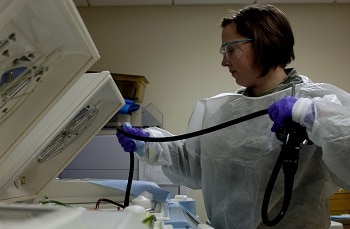
Lors de la visite de votre médecin gastro-intestinal, un plan de traitement/récupération sera formulé en fonction des résultats du diagnostic.
Si vous vous retrouvez à vous soigner plus de deux fois par semaine pour des brûlures d'estomac, cela seul est un signe de besoin d'être traité par un gastro-entérologue. Les conditions qui ne sont pas traitées par un GI expérimenté peuvent potentiellement entraîner une complication plus grave.
Avez-vous des problèmes avec la déglutition des aliments? Vous rencontrez des difficultés lors du prélèvement de liquides ? Éprouvez-vous un gonflement sporadique ou constant dans la région de la gorge ? Si tel est le cas, cela pourrait être un signe avant-coureur d'une affection mineure ou grave qui devrait vous inciter à consulter un gastro-entérologue pour un diagnostic. "Tout type de douleur ou d'agitation causée par l'eau potable peut être un signe avant-coureur d'un problème gastro-intestinal grave", a déclaré le Dr Vikram Tarugu, un gastro-entérologue expérimenté, certifié et primé.
D'autres signes avant-coureurs à garder à l'esprit que le gastro-entérologue devra savoir sont si votre difficulté à avaler est accompagnée ou non de hoquet, d'enrouement de la gorge, de toux fréquentes ou d'une sensation de satiété après avoir mangé une très petite portion de nourriture. Si l'un de ces signes avant-coureurs potentiellement dangereux se produit, la cause pourrait provenir d'un cancer de l'œsophage. En tant que tel, si vous rencontrez l'un de ces signes avant-coureurs, n'hésitez pas demander conseil auprès de votre médecin traitant ou d'un gastro-entérologue si vous avez déjà une relation avec lui. Ressentez-vous une odeur inhabituelle en passant des gaz ? Cela pourrait être un signe avant-coureur de parasites infectieux
Étonnamment, en moyenne, la personne typique passe près de 2 litres de gaz par jour, à moins que des anomalies ne se produisent dans le tube digestif. Un signe d'avertissement auquel il faut prêter une attention particulière est si vous ressentez une douleur ou une gêne dans la région abdominale pendant les périodes de gaz ou lorsque vous allez à la selle.
De plus, si les selles et les gaz qui passent ont commencé à avoir une odeur inhabituellement horrible, cela pourrait être un signe que vous avez la giardia, un parasite qui irrite et infecte les intestins. La giardia pouvant s'aggraver si elle n'est pas traitée, un tel signe d'avertissement ne doit pas être négligé.
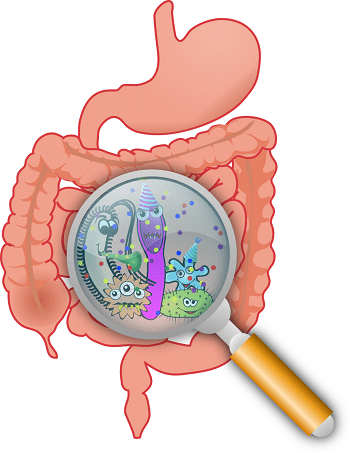
Nous avons tous connu des ballonnements à un moment donné de notre vie, mais s'ils deviennent persistants, il est possible qu'il y ait une cause sous-jacente. Si vous avez remarqué que vous aviez du mal à enfiler votre short alors qu'il y a quelques jours à peine, vous le portiez sans problème, vous n'êtes peut-être pas à blâmer.
Les ballonnements se produisent simplement lorsque notre consommation de nourriture/d'air est trop importante et que notre corps ne s'en débarrasse pas correctement. Cependant, si les ballonnements commencent brusquement sans raison apparente (vous n'avez pas mangé depuis un moment) et se produisent parallèlement à la présence de douleur ou de sang dans les selles, cela pourrait être un signe avant-coureur qu'il est temps de consulter un gastro-entérologue.
Un tel signe pourrait éventuellement signifier que le développement de la maladie coeliaque, du RGO (reflux gastro-oesophagien), de la constipation du SCI (syndrome du côlon irritable) ou des calculs biliaires a commencé.
Dans tous les cas où vous reconnaissez du sang dans vos selles ou des douleurs aiguës anormales dans la région abdominale lorsque vous passez des gaz ou que vous allez à la selle, vous devez absolument être diagnostiqué et traité par un médecin gastro-intestinal.
Un signe avant-coureur qui devrait être diagnostiqué par un médecin gastro-intestinal est une perte de poids soudaine, inattendue et inexpliquée. Bien qu'une perte de poids soudaine puisse être attribuée à divers autres problèmes de santé, le meilleur endroit pour rechercher la racine du problème est généralement le système digestif.
Le Dr Tarugu, un gastro-entérologue certifié du sud de la Floride avec plus de 2 100 procédures réussies, a déclaré que "le premier problème que vous souhaitez isoler comme cause d'une perte de poids soudaine est le cancer de l'estomac, du pancréas ou du côlon".
Par conséquent, si vous subissez une perte de poids soudaine, consultez un gastro-entérologue afin de vous assurer qu'il ne s'agit pas d'une maladie cancéreuse ou de la maladie de Chron/cœliaque (ce qui diminuerait la capacité de votre corps à absorber les nutriments vitaux).
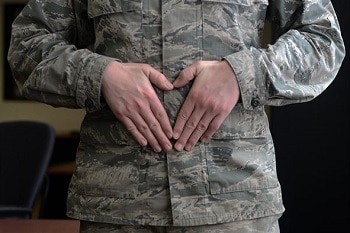
En allant à la selle, il serait probablement un peu inquiétant de remarquer des sentiers rougeâtres sur le papier toilette car nous savons tous que le saignement d'une telle zone n'est pas normal. Un saignement de la région du rectum peut être le signe d'une condition potentiellement dangereuse et doit être diagnostiqué et traité "immédiatement".
Bien qu'il soit possible que le saignement soit causé par des hémorroïdes, si ce n'est pas le cas, il sera absolument nécessaire de consulter un gastro-entérologue, surtout si le saignement se reproduit et si la personne a plus de 40 ans.
L'indigestion (également appelée médicalement « dyspepsie ») est le terme utilisé pour décrire une condition qui implique plusieurs symptômes différents qui surviennent pendant un repas. Certains de ces symptômes peuvent inclure la sensation d'être « bourré » une fois que vous avez terminé un repas en plus d'une « douleur » ou d'une « sensation de brûlure » dans la partie supérieure de l'abdomen.
L'indigestion est une affection assez courante chez les adultes d'âge moyen à avancé, qui survient sur une base mensuelle, hebdomadaire ou même quotidienne.
Si vous ressentez l'un des symptômes suivants, il est essentiel de demander conseil et traitement à un médecin gastro-intestinal pour prévenir les complications :
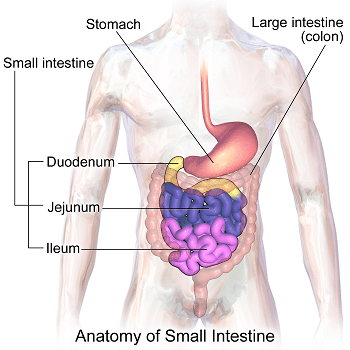
Lors de la visite de votre médecin gastro-intestinal, un plan de traitement/récupération sera formulé en fonction des résultats du diagnostic.
Les suggestions de traitement possibles peuvent inclure :
Gardez à l'esprit que l'indigestion et les brûlures d'estomac sont deux conditions différentes, chacune ayant ses propres symptômes.
Cependant, si vous ressentez les symptômes des deux, il est possible que vous souffriez des deux. Quoi qu'il en soit, que l'agitation soit mineure ou grave, il est important que vous preniez au sérieux un tel signal d'avertissement et que vous consultiez un médecin gastro-intestinal qui vous aidera à diagnostiquer et à remédier à la ou aux affections.
Nausea is quite an unpleasant experience and can use intense feeling of dizziness, minor to severe discomfort and paint in the abdominal area. On the other hand, often times accompanies by nausea, vomiting is the occurrence of a contraction from the stomach that during times of nausea can help one feel a bit better as the content of stomach is during vomiting is the process in which it’s propelled up thru the esophagus.
Intense and consistent vomiting could possibly be a warning sign of a Gastroenteritis which can be treated by a gastroenterologist. Gastroenteritis is known to be a viral infection that causes inflammation within the digestive tract and can be treated thru the use of medication(s) which will be recommended by the gastroenterologist that you choose to visit.
Are you experiencing a dullish pain in the stomach, weight loss, the undesired to intake food due to pain or nausea/vomiting? If so, this could be a sign of a minor yet serious matter. Such warning signs could possibly mean that you’re suffering from a Peptic Ulcer which can be diagnosed by a gastroenterologist thru the use of an upper GI series or an endoscopy.
If you’re experiencing upper abdominal pains (one of the biggest signs of a stomach ulcer ) be sure that you seek the diagnosis/treatment from a GI doctor so you can have it treated while preventing the possibly of further complications arising from the condition.
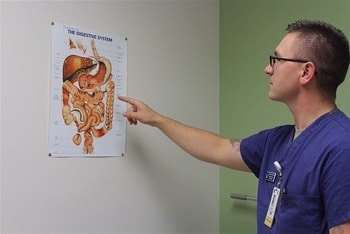
Individuals that may have GI disorders can suffer from warnings signs that are both painless and pain-induced. Such symptoms can be diarrhea/constipation (in some cases, irritable bowel syndrome). Such signs, whether they’re painful or not, could possibly be a sign of a condition other then IBS known as “centrally mediated abdominal pain syndrome” (or “CAPS” for short) which used to be medically referred to as “functional abdominal pain syndrome” (FAPS).
CAPS is a gastrointestinal disorder and is typically caused by a change in the nerve impulse sensitivity and will cause intense and frequent pain in the abdominal section which for some individuals will be quite severe.
In some cases, pain can be so intense and persistent that it’ll affect you in the similar way as the pain from a tooth ache as it can consume your focus/life since it has a tendency to “not go away” for extended periods of time. If such warning signs are present, seek counsel from a gastroenterologist where an antidepressant may be prescribed to not only reduce anxiety caused by the pain but to help alleviate the pain all together.
If you’re experiencing the feelings of belching, bloating or flatulence (build-up of gas in the alimentary canal), these could be warning signs that you you could possibly be suffering from a number of different conditions including allergies to certain foods, lactase deficiency, peptic ulcer disease or a H. Pylori Infection. Each of these we’ll cover below more in-depth so you can determine the possible cause(s) of your symptom(s).
Food Allergies – While not typical, the most severe allergic reaction that one can inherit from the ingestion of food is known as “anaphylaxis” which could possibly be life-threatening. Studies have shown that 90% of all allergies related to foods are caused from the ingestion of soy, wheat, shellfish, tree nuts, fish, peanuts, milk and eggs. If pain tends to arise after consuming such food items then this may be a signal that you need to seek the treatment of a gastroenterologist.
Lactase Deficiency – While lactase deficiency is pretty common with an estimated 3 million cases per year alone within the US, it’s an issue that’s brought upon individuals whose body has difficulty with digesting the sugar contents within dairy products. These issues arise in the digestive tract and can be treated by a GI doctor thru the use of recommended off-the-shelf medication(s) or by a prescribed medication (depending on the severity of your condition.

Individuals suffering from “Lactase Deficiency” can expect such warning signs to arise within 30 minutes to 2 hours from the consumption of milk or other food items containing dairy.
While symptoms aren’t always noticeable there are some warning signs that if arise should prompt you to see a gastroenterologist.
If you experience persistent and severe abdominal pain, have difficulty with swallowing or have bloody/black vomit that has the appearance of coffee grounds then seek diagnosis from a GI doctor for treatment as these are all warning signs that need attention before complications arise.
If you experience a yellowing of the eyes/skin then it’s very well possible that this is the warning sign that Jaundice is occurring. Jaundice is a condition in which there’s an excessive amount of bilirubin in the blood which is known, medically, as hyperbilirubinemia.
Bilirubin is a “yellow pigment” substance that affects the color pigmentation in the white of your eyes and your skin tone.
If you’re experiencing such signs of this condition schedule an appointment to see a GI doctor as quickly as possible as if not, further complications could develop which could lead to:
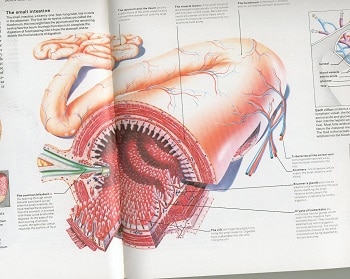
One warning signing of a possibly serious complication that should be diagnosed immediately is pain experienced in the abdominal section with the occurring pain spreading/radiating to your back. Such a feeling is a strong indicator and warning sign of “gallstone pancreatitis ”.
Gallstones are a pretty common cause of pancreatitis and this is caused by gallstones that develop in the gallbladder to block the bile duct which puts a stop to the pancreatic enzymes from being able to travel to your small intestine (which forces them to return to the pancreas).
During this process, these pancreatic enzymes will agitate the pancreas cells which will cause inflammation which can cause a great deal of pain that will radiate from the abdomen to the back. In some cases, this feeling of pain will also be accompanied by a tingling, prickly sensation. If such warning signs arise, seek attention from a physician or preferably a gastroenterologist who will help to diagnose the issue so proper treatment can be prepared/prescribed.
In the event that the gastroenterologist determines that your pancreatitis us due to the gallstones then an ECRP (Endoscopic Retrograde Cholangiopancreatography) will be performed which is a procedure conducted by the GI doctor to remove the stones.
For heavier/obese women it’s important to take cautious note of any pain that stems from the upper right-hand side of the abdominal sections as such a pain could be the indicator of “gallstone pancreatitis” (a prominent condition for heavier-set women). What’s causing such pain is the process of the gallstones blocking the bile duct which causes a chain reaction as this will stop any/all pancreatic enzymes from traveling to the small intestine providing the enzymes with no choice but to return to the pancreas. If the gallstones travel from the gallbladder to the common bile duct, gallstone pancreatitis can develop which is a condition that can continue to worsen and mature in pain while also leading to further complications if not treated.
If you’re medically considered to be “obese” and have had such pain on a regular or consistent basis, consult a GI doctor as treatment in the form of medication and surgeries are available (depending on the severity of the condition). Only making 1-2 bowel movements per week? Difficulty with going? Pain during defecating?
There are a few signs to look out for and notate when looking for signs of possible gastrointestinal complications. A few of these signs include difficulties with making bowel movements, only making 1-2 bowel movements per week or if you experience pain during defecating. Constipation is considered to be present whenever an individual is making only 1-2 bowel movements per week so if this persists this alone could be a warning sign of “anal fissure”. With an estimated 200,000 cases per year within the US alone, anal fissure is a condition that refers to the tearing in the lining of the anus which can cause an immense amount of pain during all three scenarios we referred above (making bowel movements and pain during throwing-up).
Anal fissures develop throughout the specialized tissues that line both the anus and anal canal and this is called the “anoderm”. The reason this can be (and more than likely “will be”) so painful is because of the over-abundance of nerves located within the anal canal. Diagnosis and treatment from a gastroenterologist is recommended. Typically, diagnosis of this condition can be determined by the physical inspection of area with either medication or surgery being recommended to treat (depending on the severity of the anal fissure).
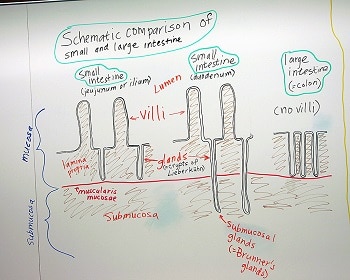
If you’re experiencing symptoms of a condition that includes intense and regular fevers, nausea/vomiting and diarrhea then notate these warning signs to show a gastroenterologist as these are signs of a possibly serious condition known as “bacterial gastroenteritis” which will need to be treated to prevent complications that could arise.
Bacterial gastroenteritis is a condition that develops and occurs whenever bacteria infiltrates your gut can and initiates an infection. If this occurs, inflammation will develop both in your stomach and intestines which will cause discomfort to say the least. Typical symptoms of “bacterial gastroenteritis” includes severe, extreme and persistent cramps in the abdominal area in addition to diarrhea/
While viruses are responsible for the majority of gastrointestinal infections bacterial infections are nearly just as common. A majority of people refer to bacteria-initiated infections as “food poisoning”.
There are a few different causes of “bacterial gastroenteritis” which can be poor hygiene habits, coming in close contact with pets or animals or from consuming foods/fluids that are contaminated with bacteria (even air-borne bacteria). If such warning signs arise, seek medical attention from a physician or preferably a gastroenterologist so the issue(s) can be properly treated to above any further development of bacterial growth.
First and foremost, any sign(s) of rectal bleeding is “not normal” and should never, in any scenario, be dismissed as a minor or non-severe matter as it’s a serious occurrence that requires the attention and treatment from a gastroenterologist.
One of the most prominent signs and symptoms of “irritable bowel syndrome” (IBS) is rectal bleeding and the presence of blood in the stool. In some circumstances, a warning sign is not making a bowel movement at all or only 1-2 times per week.
Blood expressed from the body caused IBD will appear to be “bright red” while if blood is originating from the upper area of the digestive tract the blood will be darker (dark/black stools). If such a sign has arisen be sure that you notate the darkness of the blood so you can provide this detail to a gastroenterologist who will use this information as a part of the diagnosis and treatment(s). In any case, if bleeding from the rectum is “severe” or if you’re throwing-up blood than this is a sign of a severe condition occurring which needs medical attention “immediately”.
Furthermore, such signs could also be a warning sign that you’re suffering from either “Crohn’s disease” or “ulcerative colitis” which are also conditions that you’ll want to have inspected by a GI doctor. Chron’s disease is a condition affecting 200,000 individuals per year and is a chronic, inflammatory irritable bowel disease that runs alone the digestive tract lining.
Ulcerative colitis is another chronic disease that inflames the bowel area which results in the digestive tract becoming inflamed. If any of the warning signs above are occurring, seek medical attention. You don’t want to take the chance of such conditions maturing in growth/size as not only could further complications arise but you may have to undergo additional treatments which otherwise could’ve been avoided had you have the condition(s) treated early on.
Experience vague or minor abdominal pain with a change in bowel movements last for 3+ months? Any changes in your normal bowel movement habits that are lasting for 3+ months is a sign that your body is changing, or, is changing due to an irregular occurrence/condition that should be looked at by a GI doctor; especially when you’re experiencing changes in bowel movement that are lasting for an extended period of time.
Irritable Bowel Syndrome (IBS) is a condition that can spark a significant amount of pain to its victims and will initiate a discomforting agitation feeling in the abdominal area. There are some very common symptoms of having IBS which include constipation, gas and diarrhea (in addition to a pain-induced belly). Having your IBS diagnosed for the severity will help you to have a planned pain-management regiment that will be created for you by the gastroenterologist.
When your stomach is experiencing pain it’s caused from the constipation or the diarrhea although is the painful feeling(s) diminish upon making a bowel movements then more than likely, your symptom(s) are an indicator of your pain being tied to a condition other than IBS (consult a GI doctor for diagnosis). This pain is initiated by contractions which can and will cause intolerable pain that will consume your life, make it difficult to rest and will make it difficult to focus on aspects of life (work for example).
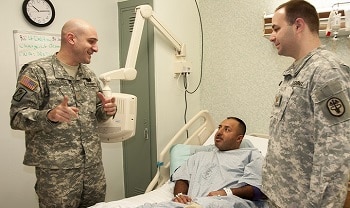
When it comes to your health it’s never a smart idea to over-look symptoms of possible health-related complications and rectal pain, bleeding from the rectum or the presence of blood in your stool are warning signs of a possibly serious complication. If you’re experiencing any of these signs, there’s a possibility that you body is suffering from one or more conditions that include it hemorrhoids, anal fissure, or anorectal cancer (although this is rare).
Hemorrhoids is a condition that should be treated by a GI doctor as Hemorrhoids is a medical condition that means the veins in the rectum and anus have become “swollen” which can cause the veins to bulge which will then result in severe agitation especially during bowel movements. Swollen hemorrhoids may be referred to by your gastroenterologist as “piles” as this is a commonly used medical term for this particular condition.
Hemorrhoids , depending on the severity of you case(if it’s determined by the GI doctor that you in-fact have it), you may undergo an operational procedure where the gastroenterologist will make use of specially designed medical equipment (not that intrusive) to “shrink” and “remove” the hemorrhoids which could actually be done on-site at the GI doctor’s office. Another treatment option is the GI doctor administering an injection in to the hemorrhoid with a specially formulated solution that will result in scarring the hemorrhoid to close it off.
Fissure anale is another condition that could be occurring if bleeding from the rectum is prevalent as this condition is the occurrence of “tearing” in the anus lining which will cause blood to originate out of the rectum which can be noticeable by looking at the stool (is blood noticeable?).
Finally, bleeding from the rectum can “possibly” be a sign of “anorectal cancer ” although this is quite uncommon and not the typical cause of bleeding from the rectal region. “Anorectal cancer” is a malignant infested disease that forms within the tissues and glands of the anus. If you’re suffering with HPV (human papillomaviurs) will increase the chances of “rectum cancer development” so it’s vitally important that you seek diagnosis is warning signs such as rectal bleeding occur.
For elderly/older women, experiencing a bulge or in the rectal area (comparable to a stomach bulge) is a serious sign of either “rectal prolapse” or “vaginal prolapse”; serious yet treatable conditions that can be cured by a gastroenterologist thru the practice of medication(s) or procedural operations.
In the United States it’s estimated that 10% of all elderly women suffer from rectal prolapse with signs ranging from rectal bleeding to the feeling of a “bulge” in the rectal region (noticeable to the touch). Rectal prolapse, specifically, is a condition in which the parts of the large intestine will protrude out of the anus and will cause quite a bit of discomfort, pain, difficulty with making a bowel movement and rectal bleeding.
If such signs occer, don’t procrasitance on receiving treatment. Consult with a GI doctors so treatment preparation(s) can be facilitated.
Vaginal prolapse is another condition that rectal bleeding can be a warning sign of. Vaginal prolapse is a serious condition where the bladder, rectum, urethra, small bowel or uterus will begin to fall out place.
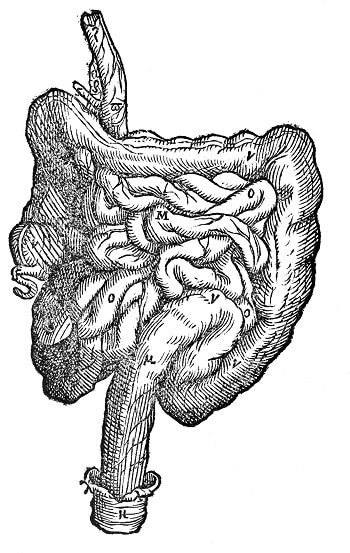
If any of these warning signs occur, it’s time to visit a gastroenterologist so you can receive an accurate diagnosis and treatment.
When it comes to your overall health, maintaining your normal body functions and avoiding complications a gastroenterologist can is a great go-to medical professional as you’ll be able to take advantage of the specialized training that the GI doctors has received so you can alleviate yourself of medical complications.
If any of this signs on this list has occurred, don’t hesitate to seek the intervention of a GI doctor. It’s paramount to ensuring the longevity of your health and will provide you with the peace-of-mind knowing that your symptoms are being affectively diagnosed and of course, treated.
We hope you found this guide helpful. Your gastrointestinal health is important to us and it’s our sincere mission to provide useful medical advice and suggestions.
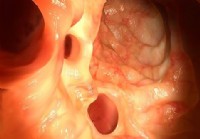 Comment puis-je me débarrasser rapidement de la diverticulite ?
Comment puis-je me débarrasser rapidement de la diverticulite ?
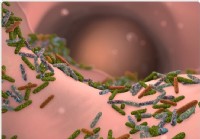 Les aliments qui stimulent l'intestin peuvent mettre fin à la malnutrition infantile dans le monde
Les aliments qui stimulent l'intestin peuvent mettre fin à la malnutrition infantile dans le monde
 Stress et digestion – 3 conseils pour gérer le stress afin d'améliorer la digestion
Stress et digestion – 3 conseils pour gérer le stress afin d'améliorer la digestion
 Salade de tacos costauds (PRENEZ DANS MON VENTRE)
Salade de tacos costauds (PRENEZ DANS MON VENTRE)
 Visite guidée :Centre d'excellence en coloscopie
Visite guidée :Centre d'excellence en coloscopie
 Comment savoir si votre douleur au SII n'est pas une appendicite
Comment savoir si votre douleur au SII n'est pas une appendicite
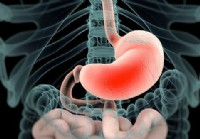 Comment se déroule une manométrie œsophagienne ?
Quest-ce quune manométrie oesophagienne ? La manométrie œsophagienne utilise des capteurs de pression pour tester la fonction des muscles de lœsophage. Lœsophage est le tube musculaire qui relie la
Comment se déroule une manométrie œsophagienne ?
Quest-ce quune manométrie oesophagienne ? La manométrie œsophagienne utilise des capteurs de pression pour tester la fonction des muscles de lœsophage. Lœsophage est le tube musculaire qui relie la
 Chili doux et épicé à la citrouille SCD
Si vous navez pas découpé toutes vos citrouilles en citrouilles, il est temps de cuisiner avec elles. Et quoi de mieux que de préparer une grande marmite de délices que vous pourrez manger pendant des
Chili doux et épicé à la citrouille SCD
Si vous navez pas découpé toutes vos citrouilles en citrouilles, il est temps de cuisiner avec elles. Et quoi de mieux que de préparer une grande marmite de délices que vous pourrez manger pendant des
 La relation entre le vieillissement, votre intestin et les allergies
Nous entendons beaucoup parler denfants souffrant dallergies alimentaires, mais saviez-vous quil est possible de développer des allergies alimentaires à tout moment de votre vie ? Bien quon ne sache p
La relation entre le vieillissement, votre intestin et les allergies
Nous entendons beaucoup parler denfants souffrant dallergies alimentaires, mais saviez-vous quil est possible de développer des allergies alimentaires à tout moment de votre vie ? Bien quon ne sache p